Ducks are some of the most interesting creatures in the animal kingdom. Not only are they incredibly cute, but they have some pretty unique sleeping habits too! In this article, we will cover where ducks sleep and how they sleep both domestically and in the wild. We will also discuss some of the dangers that ducks face when trying to get some shut eye. So without further ado, let’s jump right in!
Ducks are usually found sleeping on the ground, either in shallow water or dry land. They spend most of their time on land during the winter months. When they do go down to the water, they prefer to stay near the shoreline. During migration, they may stop at inland lakes or rivers, but they generally avoid large bodies of water. Most duck species prefer to rest in the shade, although some, like the Muscovy duck, will also roost in tall grasses.
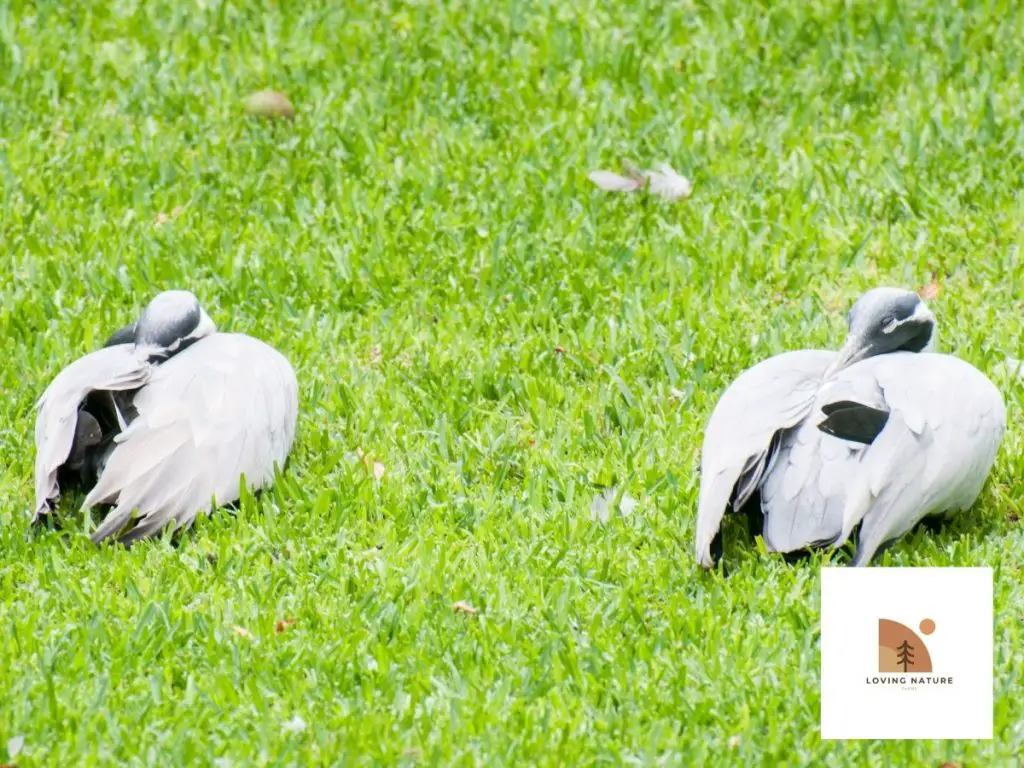
What Is A Ducks Sleeping Routine?
Ducks are very social creatures. Their brains operate differently during different stages of life. When they are born, their brains are still developing, so they are not fully capable of doing anything else besides eating and sleeping. As they grow older, their brains become more mature and they start thinking about other things. Ducks also have a hard time falling asleep because they are always worried about something. So, they go through a period of wakefulness before finally falling asleep. During this time, they are awake but relaxed.
Ducks are not very bright birds. They are mostly focused on eating and finding shelter. Their eyesight isn’t great either. But they are still vigilant when it comes to protecting themselves and their young. If there is any sign of danger, the ducklings will wake up and move to safety. The older ducks will stay put and watch the action.
When Do Ducks Actually Sleep?
Ducks aren’t always sleeping during the day. In fact, they’re quite active at night, especially if the weather isn’t too severe. As ducks age, they need to sleep longer. Young ducks don’t need much shut eye, but as they get old, they spend more time asleep, and grooming. While ducks might not have a reputation for brilliance, they’ve definitely figured out sleep schedules that work well for them and allow them survive in the wild.
When they sleep ducks tend to curl up into tight balls. This helps keep them warm and safe from predators. It’s also easier to find food while curled up. And since they sleep with their heads tucked under their wings, they can easily take a nap without getting wet.
Can Ducks Sleep On The Water?
Ducks are usually found in ponds and lakes. They are often mistaken for geese because they fly in V formations. They are also called mallards due to their large size and long legs. They are omnivorous, eating plants, insects, and small fish. They will even eat frogs if there aren’t enough ducks around. Ducks are hunted for meat and eggs.
Ducks aren’t safe on the water therefore they must be able to sleep safely on land. They use their feet to paddle and swim. They also flap their wings to glide across the surface of the water. These movements help them maintain balance and control over their body. They also use their bills to scoop up food.
Wild vs Domesticated Ducks
Ducks aren’t actually very social creatures, but they’re still pretty easy to keep around. If you provide them with a comfortable area to sleep in, they’ll happily stay there all night long. You don’t necessarily need to provide them with a separate house, but if you do, then they’ll probably like it best if you give them a corner of the room to call their own. They don’t really need any other amenities, but if you happen to have some, they might enjoy using them. A nice cozy bed will do wonders for your duck’s well-being.
Ducks are great waterfowl because they’re easy to care for and require less space than other poultry species. However, you’ll need to provide them with an adequate amount of shelter, especially if you plan on raising them outdoors. You’ll need to ensure that the coop is properly ventilated and that you provide your ducks with plenty of fresh water and feed throughout the year.
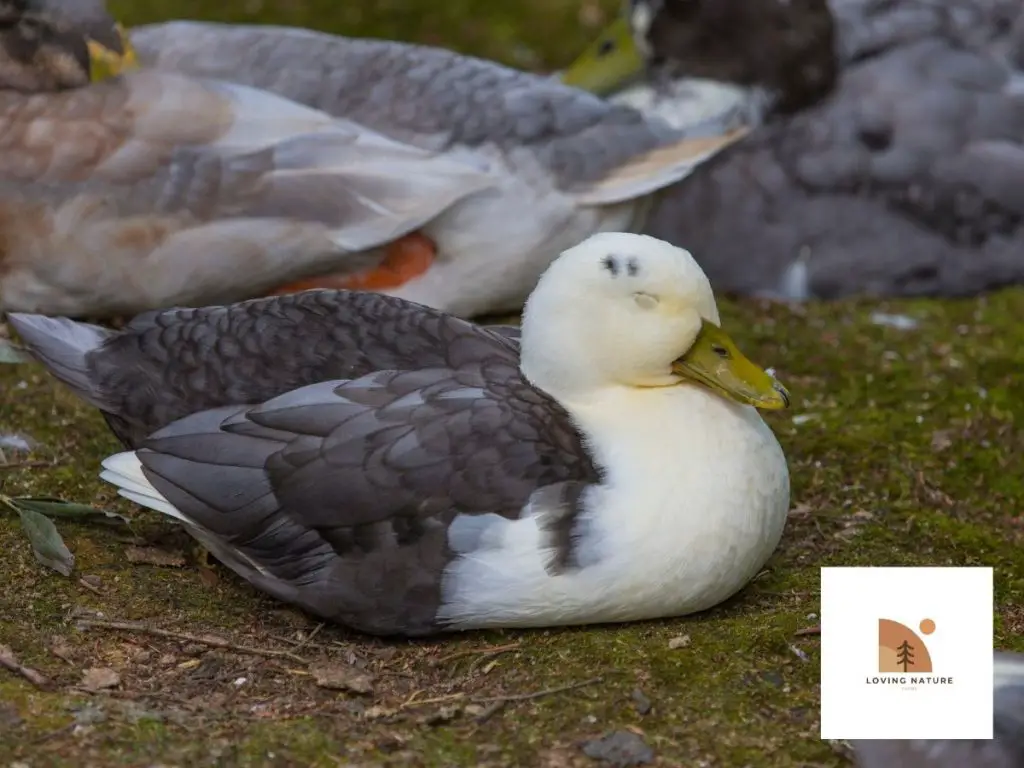
Where Are Ducks Legs When Sleeping?
Ducks usually stand on one foot while sleeping. When they’re not sleeping, they’re relaxing, so they may be standing on one leg. This is because they need less body heat when they’re standing on one leg. The arteries that bring warm blood flow next to the veins that carry cold blood back to the heart. So if there’s less blood flowing to the leg, there’ll be less heat loss.
Using Only Half Their Brain
Single hemisphere sleeping is an amazing feat of nature. A duck can have one side of its brain asleep while the other side remains active. Different parts of the brain, like different areas of the body, can also sleep independently of each other. There are multiple ways to explain this phenomenon. One explanation is that the brain is just a big organ, and it doesn’t need to be connected all the time. Another explanation is that there are two different types of neurons. One type is responsible for movement and activity, and the other type is responsible for rest and sleep. When the brain needs to focus on something, it sends signals to the right side of the brain to wake up, and when the brain needs to relax, it sends signals to sleep.
Ducks have an amazing ability to sleep with half their brain at a time. While the other hemisphere is inactive, the sleeping duck can still hear, see, smell and feel everything around them. This allows them to stay vigilant and ready for danger. When a predator approaches, the sleeping duck can quickly wake up and react appropriately. Unlike in humans, where both eyes send information back to our full brain, some birds’ brain halves correspond only to one eye. Each eye sends information to only one side of the brain, allowing the bird to keep its eyes open and alert.
Ducks use a unique form of sleep called unihemispheric slow wave activity (UHSWA) to conserve energy when not flying. When resting, they close their left eye and remain awake while the right eye closes. The brain then switches to a state of low electrical activity and high blood flow. UHSWA allows the brain to save energy while still maintaining awareness of its surroundings.
In the study, researchers placed two groups of mallard ducks in a room with a camera above them. Each duck had a radio transmitter attached to its leg. While the ducks slept, researchers would move the ducks around the room, rotating them to different positions. Every time, the birds in center would close their left eye, and those at the ends would close their right eye. Researchers also recorded brain activity using electrodes implanted in the brain. When the ducks’ brains reacted to simulated threats, the researchers could tell whether the duck was sleeping or awake because the brain activity changed depending on what the duck saw. Even when only one eye was open, the ducks still reacted quickly to simulated threats.
Some birds can switch to using just one side of their brain at night when they’re tired. It might seem like an obvious thing to do if you’ve ever tried to nap on your left side. But scientists think that it could help them stay alert during long flights. Birds usually sleep with both eyes closed, but if they close one eye, they still get about half the restorative benefits of closing both. And if they close just one side of their head, they can still fall asleep. So maybe they need to spend less time sleeping and more time flying?
One Eye Open At All Times
Ducks are famously known for sleeping with one eye open. But did you know that they also sleep with half of their brains at once? Scientists studying ducks found that when they sleep with one side of their brain at a given time, the other half of their brains stays alert. Their eyes stay open and they keep watch.
A duck sleeps with its head tucked under its wing. When an intruder approaches, the duck will wake up and raise its head, alerting the rest of the flock. If the intruder continues towards the flock, the ducks will all turn around and flee.
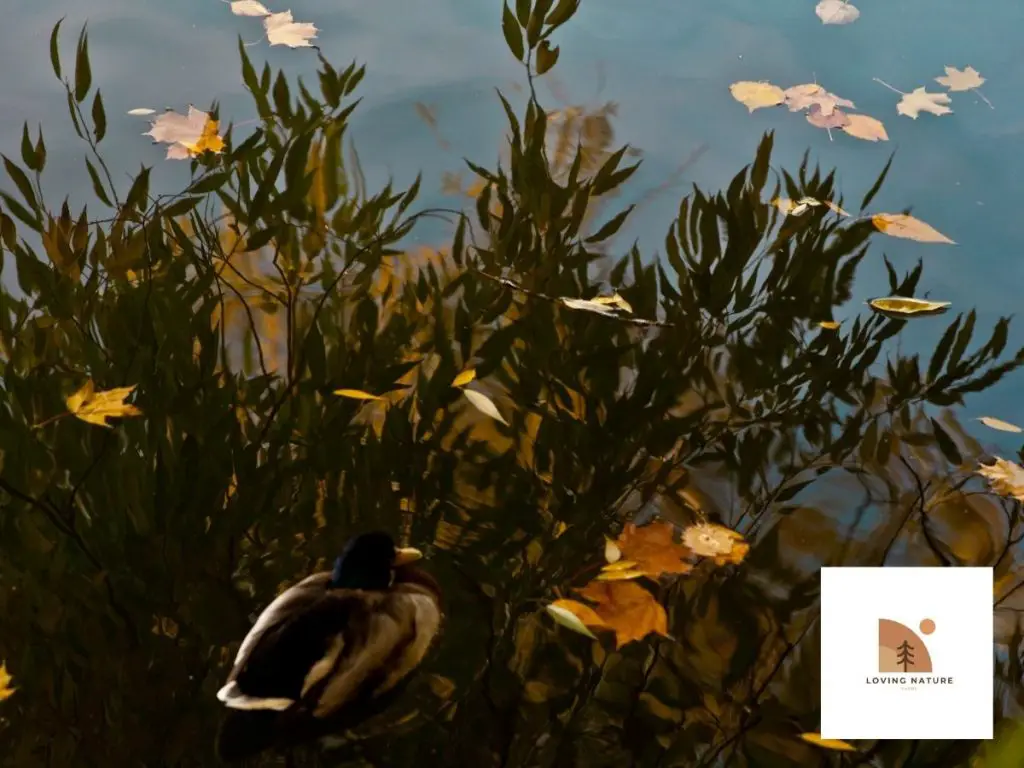
Ducks dive deep underwater
Divers, like ducks, dive deep underwater to forage for food. Because their wings are so small and narrow, they can’t take off from the surface. They run along the water’s surface in order to build up their speed and strength for the dive. But why do ducks dive so deep? To discover the answer to this question, let’s explore the biology of ducks. Read on to find out more about how they survive and live in the water!
The first winter dives of ducklings of the B97-1 population were over eight seconds long. The dives of adults and ducklings were of different lengths, but most were longer than seven seconds. In fact, ducks sometimes sift through mud at the bottom of the water, looking for tiny insects. However, no adult female was observed diving during these observation periods. So the study reveals that ducklings can be a good indicator of how deep ducks dive.
When diving, ducks are much heavier than average ducks, which helps them stay underwater for extended periods of time. However, dabbling ducks, such as mallards and American wigeons, have no ability to waterproof themselves. Therefore, they may drown if they venture too far from a shallow area. And female ducks often drown during mating. This is because male ducks repeatedly push their females’ heads under water before mounting.
Common eiders are the largest duck species in the Northern Hemisphere, and weigh up to six pounds. They are excellent divers, though they don’t take off seamlessly. Incubating female common eiders spend 99% of their time on the nest. They leave every two to five days to feed their chicks, but they rarely feed themselves during this time. In their breeding range, most people have placed nest boxes.
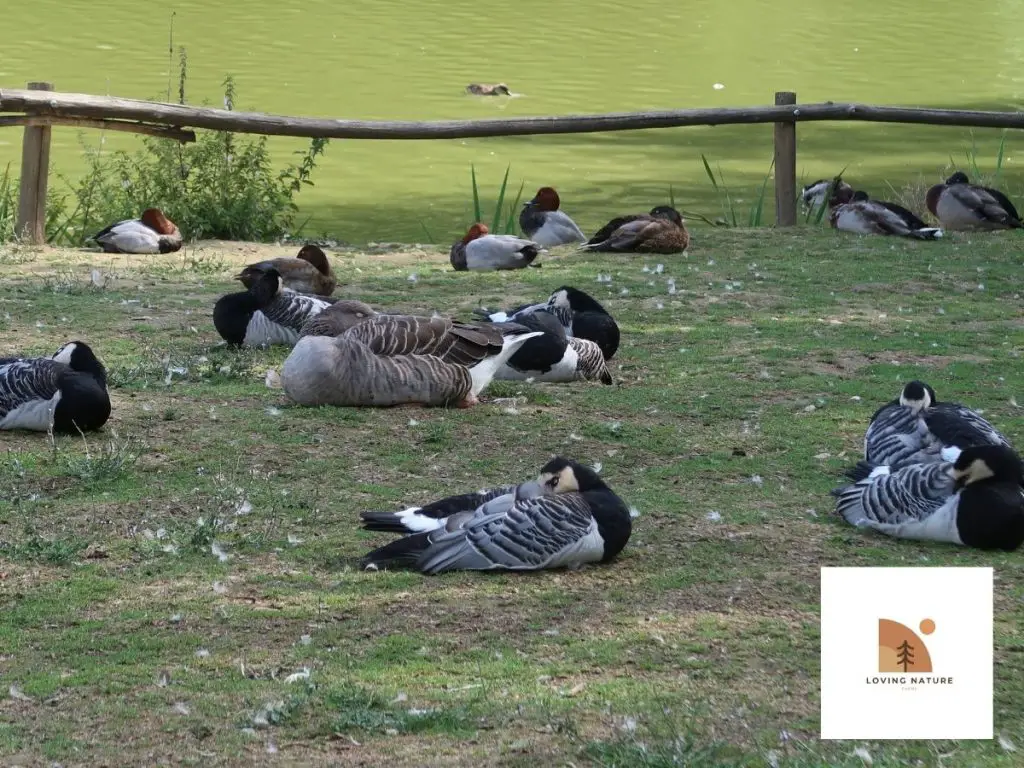
Ducks sleep on land
While we’re awake and active, ducks spend the majority of the day sleeping. They will sleep on land, in the water, or even on both. Some may sleep on one leg and half of their brains are still active. Ducks are highly adaptable animals and can survive in just about any type of environment. They don’t sleep for long periods of time in warm weather and typically take short naps throughout the day.
The majority of ducks sleep on land, although some geese also roost in coops. In the wild, ducks sleep on the surface of lakes and ponds. Their ability to adjust to slight changes in temperature suggests that different parts of the vertebrate brain are capable of sleeping independently. In domesticated and farm ducks, roosting takes place inside hen houses or chicken coops, which contain perches and nest boxes for the birds.
While ducks sleep on land, they prefer areas with vegetation and ponds where they can find food. They may even nest near ponds. Unlike humans, ducks sleep on land with one eye open, meaning that they’re alert to threats and predators. They’re capable of concentrating on a task even while their eyes are closed. The way that they think is fascinating! There are some interesting facts about ducks that will make your next trip to the zoo a great experience.
When ducks sleep on land, their heads rest on the chest or back. Their brains are only partially active, so they have less activity during the day. During rest, ducks alternate between two legs and one eye is open. They are capable of responding in less than a fifth of a second to warning cues from predators. But that doesn’t mean that they don’t ever fall asleep. The key to the success of ducks on land is the unihemispherical nature of their sleeping system.
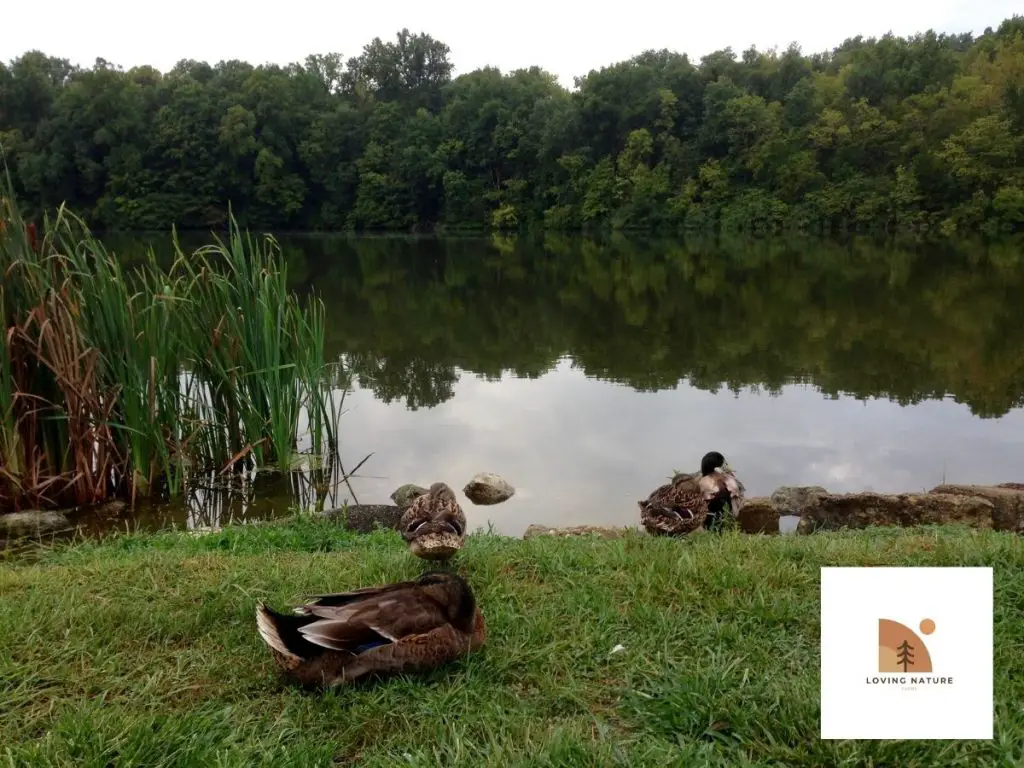
Ducks sleep in a row
Did you know that ducks sleep in rows? This is because the end ducks have designated guards that wake up the group if they see anything. End ducks sleep with one eye open and one eye closed, allowing half of their brain to sleep at a time. Besides ducks, other animals have this habit, including iguanas and otters. Here are some fascinating facts about ducks.
First, ducks sleep in a row for several reasons. The ducks in the center protect the outside ducks and sleep with half their brains asleep. They also rotate responsibilities, so that they protect each other. This behavior is very similar to orangutans, who can smile and laugh when they’re asleep. It also conserves heat and protects the group. The guard ducks also keep the rest of the group safe by keeping an eye open for the rest of the group.
Ducks’ sleeping habits have been studied by Dr. Niels Rattenborg. He conducted a study to analyze the brain waves of ducks and other birds. The study concluded that they sleep with one eye open more often than their counterparts. The ducks on the outer rim of the row kept one eye open, while the ones in the middle kept both eyes closed. These findings show that ducks sleep in a row when the center of the row has no preference.
As the name suggests, ducks sleep wherever they feel most comfortable. In addition to floating on the water, ducks sleep on land and in water. Their habits are flexible and adaptable, as they need to sleep all day long and not just at night. They take naps after they forage, groom, and preen their feathers. The studies also revealed that ducks’ brainwaves differ from those of humans.
Final Thoughts
Ducks are able to sleep with one eye open and half their brain at a time in order to stay vigilant for danger. This allows them to conserve energy while still being aware of their surroundings. Scientists have also found that ducks can switch to using just one side of their brain at night when they’re tired. This helps them get the rest they need while still being able to fly long distances.
As you can see, ducks have some pretty interesting sleeping habits! Now that you know more about how they sleep, you can better understand their behavior and what they go through on a daily basis. Thanks for reading!
Leave a Reply